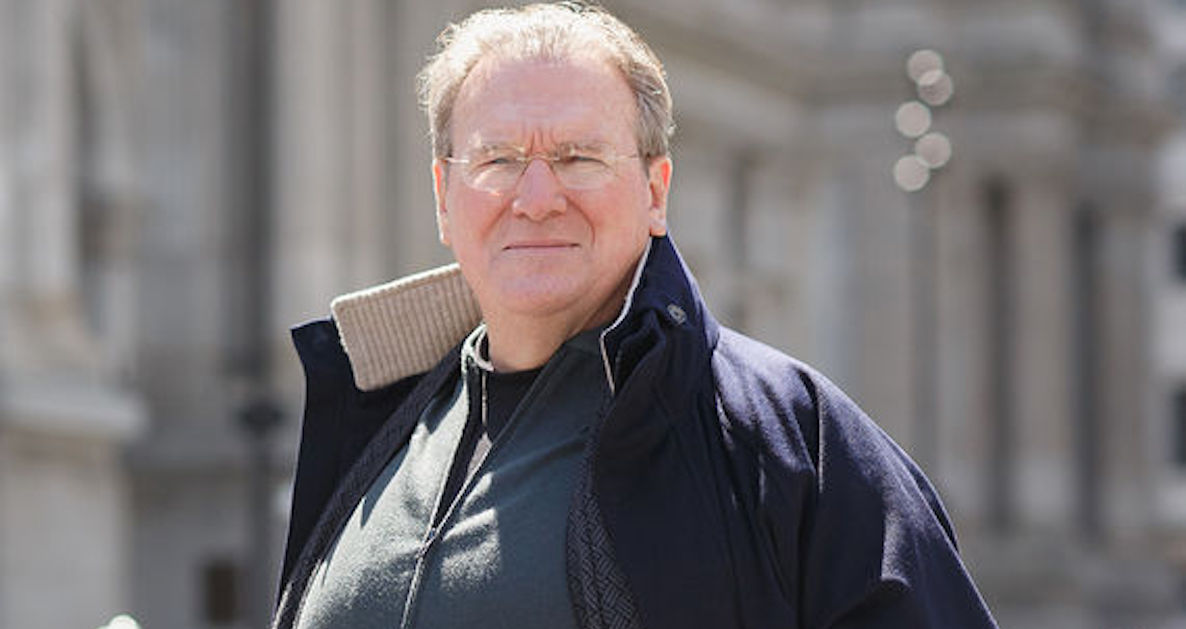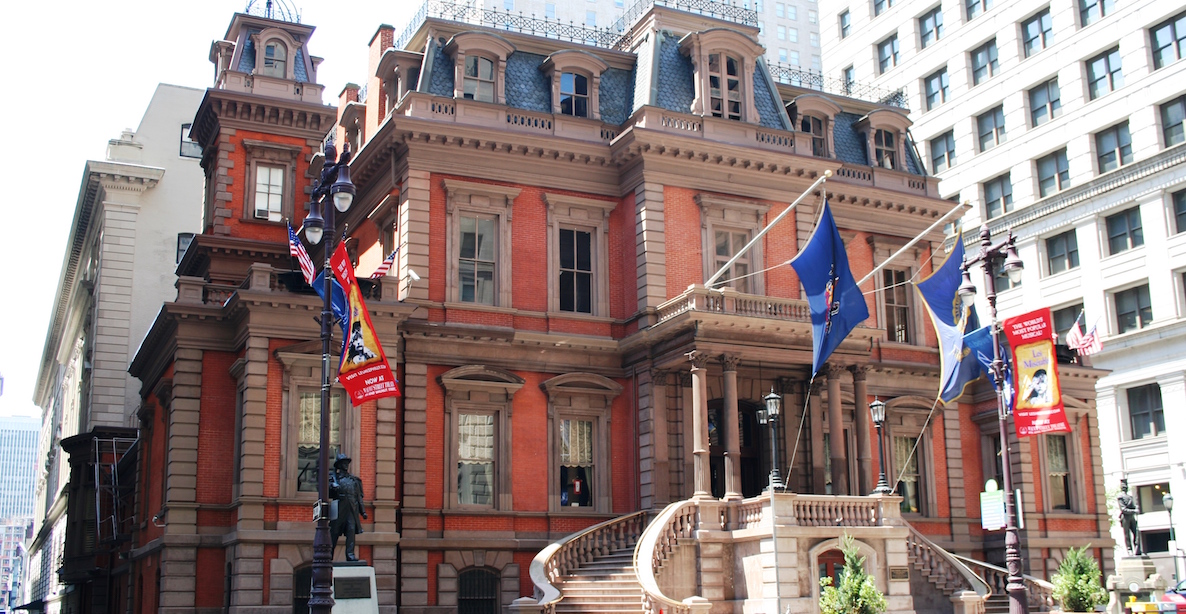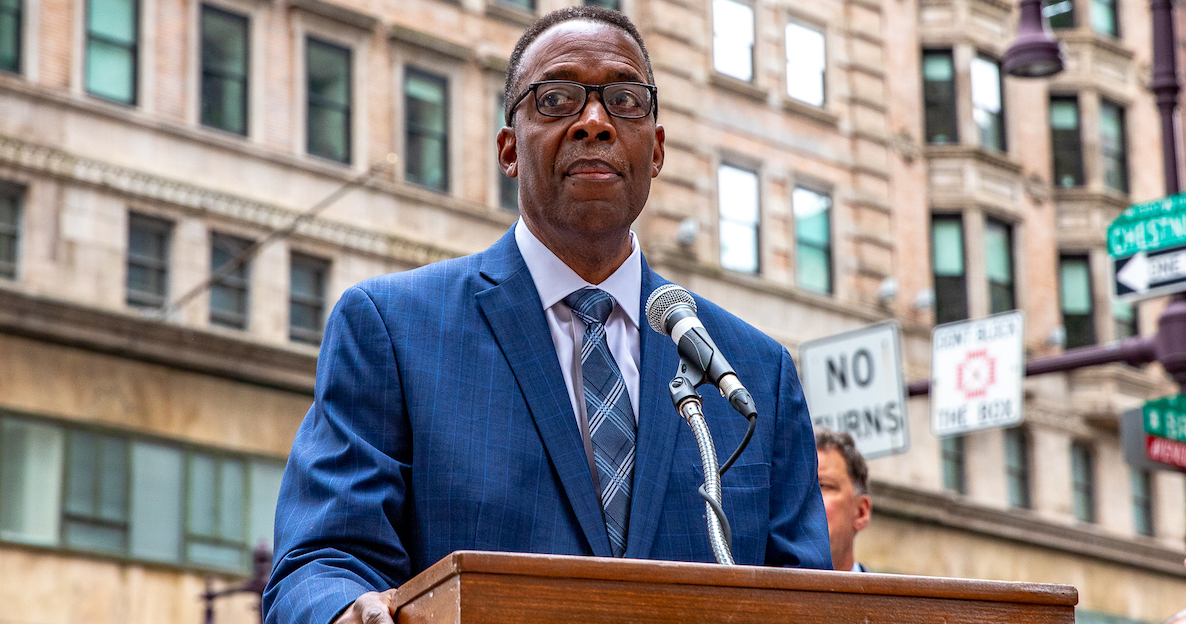Guess which city is the only one among the nation’s biggest to impose term limits on its mayor, but not its City Council?
That would be the same one in which, in the last election, eight out of 10 District Council members ran essentially unopposed for reelection. And the same one whose Council hasn’t held a single hearing on its city’s unfunded pension crisis (fully 16 percent of the city budget allocated to shore up the shortfall); and that, in 2015, refused to even hold a hearing on a potential $1.5 billion sale of its gas utility.
It’s the same Council that stands in judgment of how every other city department spends its money, yet refuses to itemize nearly $2 million in a mysterious “Purchase of Services” line item in its own $17 million budget. And it’s the same Council that, as per a gentleman’s agreement, permits its District council members to rule development in their fiefdoms with an iron fist—the common good be damned.
Uh, spoiler alert: It’s Philly.
Former Mayor Bill Green once called Philadelphia’s City Council “the worst legislative body in the Free World,” right around the time that then-Councilmen John Street and Franny Rafferty were rolling around on the floor, brawling. Lately, while surpassing that low bar, Council has continued to find novel ways to debase itself—and us in the process.
Think about this: In the last 35 years, only 13 incumbent Council members who had served a full four-year term have lost their seats to a challenger. We don’t have elections. We have coronations.
That’s why it would be civic malpractice not to suggest that, perhaps, term limits for City Council members ought to be considered. Think about this: In the last 35 years, only 13 incumbent Council members who had served a full four-year term have lost their seats to a challenger. We don’t have elections. We have coronations.
Nationwide, terms limits are having something of a moment—driven more by Republicans than Democrats. In Georgia, lawmakers are proposing booting themselves from office after eight years of service. Earlier this month, Senator Ted Cruz introduced a constitutional amendment that would do what Beto O’Rourke couldn’t: End his own public service. Closer to home, State Rep. Ryan Mackenzie, a Republican who represents parts of Berks and Lehigh counties, has called for a constitutional convention that would impose term limits on the U.S. House and Senate.
Articles by Larry PlattRead More
But the best example of the effect term limits can have is to be found in Arlington, Texas, where a 28-year-old bomb thrower named Zack Maxwell put together a diverse coalition of citizens and took on his town’s entrenched political class. Arlington, Texas, ought to at least inspire fantasies here about how change can come to Philly’s sclerotic political status quo.
Maxwell publishes the Arlington Voice, an online newspaper he founded in order to compete with the Star-Telegram, which he saw as part of his town’s insider culture problem. “They get $100,000 a year from City Hall to publish legal notices,” he said when I caught up with him earlier this week. “How can you expect them to cover government fairly when they’re getting a big check from it?”
Maxwell says his newspaper practices traditionally objective journalism, but he makes no bones about his politically right-leaning ways. “I think Trump is basically doing a good job,” he says. Like much of Trump’s base—if not Trump himself—he’s incensed by what he sees as the insider sweetheart dealing of politics as usual.
“I’m to the right, but we had progressive groups,” Maxwell says. “We had the NAACP and the police and firefighter associations. Everybody had been disenfranchised in their own way. Everyone was saying ‘enough is enough’ at the same time.”
And, like Trump, he infused his campaign for term limits with colorful nicknames for those he sees as duplicitous in public life. He calls his town’s mayor, Jeff Williams, “Mayor McCheese” or “Jeffy The Dream Weaver,” as in: “Mayor McCheese has given our tax dollars away to all his friends,” citing a mayoral commission on transportation that, he says, was designed to get a favored result for the mayor’s cronies, and $500 million in taxpayer funds for the new ballpark of the Texas Rangers.
Of course, local politics being local politics, it’s difficult to discern from the outside if Maxwell’s complaints are right or if they themselves are spin. But what is undeniable is that plenty of others found his case to be persuasive, because Zack Maxwell jumpstarted a movement of citizens that upended Arlington’s political same-old, same-old.

In 10 weeks, Maxwell’s rag tag army of citizens knocked on doors and collected some 12,000 signatures to get term limits on last November’s ballot. “And not just term limits, extreme term limits,” Maxwell says. “Three two-year terms for Council. Six years—max—for Council and Mayor. And none of this serve for six years and take a year off and come back and run again. Sorry, we’ve had crappy Councils and Mayors taking us to the cleaners for years. If you weren’t a big donor, you were disenfranchised.”
Join us at Ideas We Should Steal Dec 10th!Do Something
Which is why Maxwell was able to build such an ideologically diverse coalition. “I’m to the right, but we had progressive groups,” he says. “We had the NAACP and the police and firefighter associations. Everybody had been disenfranchised in their own way. Everyone was saying ‘enough is enough’ at the same time.”
What followed was the stuff of high drama. Maxwell relied on Texas’ Initiative & Recall Referendum provision in its state constitution to get his term limit proposition on the ballot; Texas is one of 27 states with such a provision. Mayor Williams and Council responded by putting forth their own, significantly watered-down, term limit proposition. Maxwell suspected that the goal behind the dueling referendum items was to confuse the electorate and depress the vote for change. He says the city hired two $500 an hour outside attorneys to battle him in the ensuing court case and spent in excess of $300,000.
The court found for Maxwell, but Council nonetheless suspended its own rules and called an emergency session—Maxwell suspected its purpose was to try and ram through the second, red herring ballot initiative—and Maxwell’s team, he says, filled up City Hall with “a crowd that was just short of holding pitchforks and torches.” That show of populist power, he says, resulted in Council backing down.
It’s a testament to citizen power. If we had more Zack Maxwells here, maybe the phenomenon of the Philly Shrug would be more of a distant memory.
On election day, over 60 percent of Arlington’s voters pulled the lever for the only term limit option on the ballot—Maxwell’s. The result? Come May, three members of Council will be out of office.
So what does this case study portend for Philly? First, it’s a testament to citizen power. If we had more Zack Maxwells here, maybe the phenomenon of the Philly Shrug would be more of a distant memory.
Alas, though, the legal mechanism Maxwell used isn’t an option in Philly. Though Article I, Section 3 of the Pennsylvania Constitution states, “All power is inherent in the people…they have at all times an inalienable and indefeasible right to alter, reform or abolish their government in such manner as they may think proper,” the Constitution doesn’t go on to provide an Initiative & Recall Referendum option. Other than voting, there is no way for the people to exercise their “inherent power,” despite the fact that, in 2015, the political reform group Philly 3.0 conducted a poll and found that more than 70 percent of Philadelphians favored term limits for City Council.
Around that same time, former Mayor and Governor Ed Rendell called for changing our Home Rule Charter and imposing a two-term limit for every elected Philadelphia official—controller, district attorney, and Council among them.“We would have a more effective and efficient city government if we did that,” he said.
To this story in CitizenCastLISTEN
Amending our Charter would require two-thirds of Council signing on—which would argue for grandfathering current Councilmembers in, unlike in Arlington. Alternatively, a group like Maxwell’s could collect 20,000 signatures for terms limits and present the amendment to Council. But Council is only obligated to “consider” that proposal, not necessarily to vote on it. If a vote is taken and a simple majority of Council supports it, it would be put before the voters. Not exactly an easy road, huh?We’ve been down this way before. Back in 2010, then-Councilman Wilson Goode, Jr. proposed a term limits bill, but only then-Councilman Bill Green supported it…so it died. In 2015, Councilwoman Blondell Reynolds Brown spoke for many when she said, “We already have term limits. They’re called elections.”
But are you satisfied with the status quo? Are you happy with the representation you’re paying for with your ever-increasing taxes, in what is already the second most-taxed city in America? Brown’s point is a common refrain. And—tellingly—it’s usually made by officeholders. They argue that term limits are non-discerning; they put plenty of good legislators out to pasture before their time.
But where are these legislators who you and I can’t live without? Have you met them? Yes, we have many able public servants, but I’d wager that the city, let alone the state and country, will survive just fine without just about any of them.
You know who believed that? None other than Thomas Jefferson. He wasn’t in Philly for the Constitutional Convention of 1787, when term limits—or, as they were called then, “mandatory rotation”—were dropped from the Articles of Confederation, our first governing document.
See Zack Maxwell talk term limitsVideo
“The…feature I dislike, and greatly dislike, is the abandonment in every instance of the necessity of rotation in office…” Jefferson wrote when he got back from France and saw what had been passed. For the rest of his life, he advocated for term limits, praising “citizen legislators” and lambasting “office-hunters” who spent too much time in office.
Tommy J. wasn’t perfect, we know now. But, for all his acting out, the dude kinda knew what made for workable political systems. He was skeptical of the vote as the sole remedy to centralized power—and that’s a good thing to remind ourselves of in Philly, circa 2019.
Photo via Philadelphia City Hall Flickr









